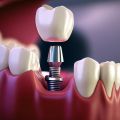What to Do When a Child Has a Toothache

This situation is always unexpected for parents. While in most cases they are to blame for its occurrence. After all, acute pain, as a rule, signals about difficult conditions, which could have been avoided with timely treatment.
Causes of Acute Toothache in a Child
Complaints about a sick tooth can be caused by many problems: from injuries to dental diseases. The most frequent among them are various diseases of the teeth and gums - caries, periodontitis, pulpitis, fluxes and fistulas, tooth enamel cracks, etc.
In this case, the child has a strong toothache. Pain can be different: sharp, pulling or aching. The pain may increase with pressure movements on the tooth or gum, as well as under the influence of hot or cold drinks and when sweet or sour foods hit the tooth.
Quite often, a strong toothache in a child may indicate trauma. If you suspect this, immediately contact a hospital for help. A broken tooth may not always fall out immediately. And even when it falls out, it may be saved if you deliver the little patient to the doctor no later than half an hour after the injury.
Hurting constant pain sometimes indicates that a new tooth is coming out. In this case, for toothache, special gels can help which include painkillers. If the cause of the pain is in this, then most likely the child will be more capricious, such symptoms as diarrhea, runny nose, and fever may appear.
If it’s something more serious then only a doctor can help a child with the toothache. The task of the parents is to reduce for some time the discomfort and ensure the fastest possible delivery of the baby to the hospital.
Proper Help When a Baby Has a Toothache
1. Correctly assess the situation
Before giving children pain relievers, think about what caused the pain. If your baby is not yet three years old, the pain may be accompanied by the appearance of a new tooth. Perhaps there is no cause for concern.
Dental pain in a child of 4 years may already indicate an inflammatory disease or injury. In order to properly understand, conduct an inspection of the oral cavity. Ask your child to open his mouth wider and carefully examine each tooth, it is better to use a flashlight. If dark spots are found, try to visit a pediatric dentist as soon as possible.
2. Offer your child to rinse the mouth with a warm solution of soda or salt
This will help to relieve a child’s toothache. The duration of the procedure should be a few minutes, and it must be repeated every 2-3 hours. Such rinses are especially effective if tooth enamel cracks or gum inflammation are detected.
3. Put a bit of propolis or cotton wool soaked in peppermint oil in the hole of the sick tooth
This can be done only if your child has no allergic reactions to these drugs. Categorically contraindicated are “adult” drugs for a toothache. Toothache subsides, but there may be disturbances in the work of other organs and subsequent complications.
4. With severe toothache, you can give painkillers to children
But these drugs must be such that they are not contraindicated for a child by age. Children's ibuprofen will help to relieve the painful symptoms. It is best to consult a dentist and pediatrician before offering such remedy for a toothache to children. This will reduce the possible risks in such cases.
Other articles and publications:
Articles and publications of other companies:
- +1 (646) 270-9836
- Long Island City
- grantny.com










